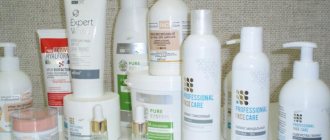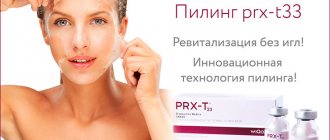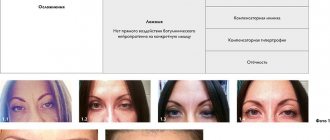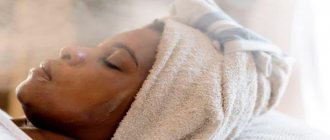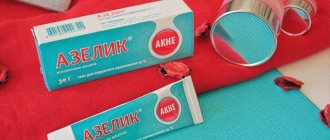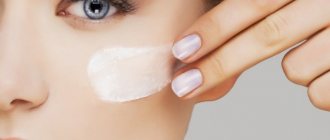Zmist
- Herbs for maintaining normal facial skin
- Healing plants for dry skin
- Chamomile
- Kropiva
- Herbal medicine for oily skin
- Yarrow
- Coltsfoot
- Natural remedies for combination skin type
- Horsetail
- If your skin is sensitive: herbs with a mild effect
- Sage
- Mint
- Medicinal plants for problem skin
- Sagebrush
- Rejuvenation with herbal remedies
- Hop
- Rosemary
- Natural cosmetics against freckles and age spots
Facial skin needs regular delicate care. And not only store-bought cosmetics will help with this, but also medicinal plants. They contain a large number of useful components that the skin needs: valuable essential oils, vitamins, minerals. A unique set of such elements provides plants with the properties necessary for normal, dry, oily skin, as well as for faces with rashes, age spots or age-related changes. Nature has a solution to many problems.
Comfortable homemade masks, scrubs, and tonics can be easily prepared from medicinal plants. They do not contain dangerous and aggressive components that can harm the face. Therefore, they can be used even by very young girls.
With natural cosmetics based on medicinal plants, your daily facial care will turn into a pleasant aromatic spa treatment that will prolong the youth and beauty of your skin.
Herbs for maintaining normal facial skin
If you have a normal skin type, this does not mean that care procedures will be unnecessary for it. At the very least, it needs gentle cleansing and moisturizing.
To keep your facial skin soft, silky, fresh and attractive, provide it with healthy vitamins and microelements using:
- chamomile;
- burdock;
- basilica;
- linden;
- plantain;
- eucalyptus.
For example, an anti-stress mask made from linden and chamomile inflorescences will perfectly restore and moisturize the skin.
Take 2 tbsp. l. linden and 2 tbsp. l. chamomile, mix the dry mixture and grind in a blender. Add 1 tbsp. l. fresh liquid honey and 1 tbsp. l. mineral water without gas. Apply the mask for 20 minutes, then rinse with warm water.
In the complex chamomile and linden:
- effectively disinfect the skin;
- if necessary, relieve inflammation;
- improve complexion;
- even out tone;
- tone;
- stimulate collagen production;
- promote rejuvenation.
Rules for using herbs
Before using any medicinal plant, you need to make sure there are no allergic reactions and individual tolerance. Afterwards you can start preparing your skin care cosmetics.
Ways to use herbs for the skin:
- orally in the form of tea – removal of waste and toxins from the body, saturation with vitamins and minerals, rejuvenation;
- ice cubes or tea bags - refreshing, toning;
- infusion for washing, wiping, compresses - a solution to dermatological problems;
- steam baths - expansion of pores before cleansing the face of blackheads;
- face masks – acne treatment, wrinkle smoothing, moisturizing and more;
- body baths with the addition of herbal infusions.
The frequency of use of phytocosmetics depends on the skin type. If the skin is oily or problematic, then masks and other cosmetics should be used 2-3 times a week, if dry or normal - 1-2 times.
Decoctions for wiping or compresses should be used warm, but in no case cold or hot.
Healing plants for dry skin
Dry skin suffers from dehydration, lack of minerals and vitamins A, B, C. And if you take care of such a face incorrectly or insufficiently, this will lead to early skin aging, itching, irritation, and peeling. To prevent such manifestations, use decoctions and masks from yarrow, hops, linden, and also be sure to place chamomile and nettle next to your cosmetics.
Chamomile
Chamomile contains a large amount of vitamin A, which in combination with beta carotene :
- strengthens the hydrolipid layer of the skin;
- protects it from ultraviolet radiation;
- prevents the appearance of age spots;
- improves cellular metabolism;
- stimulates collagen production;
- reduces inflammation;
- counteracts early wrinkles.
Chamomile also contains a large amount of vitamin C. It strengthens blood vessels and has a positive effect on collagen synthesis, brightens and evens out skin color, and improves cell regeneration.
helps get rid of dry skin .
4 tbsp. l. dry raw materials, pour a glass of boiling water, cover the dish with a lid and let it brew for 30 minutes. Strain and use to wipe your face twice a day. Store the infusion in the refrigerator for two to three days.
Nettle
Nettle helps reduce dry skin, strengthen blood vessels and increase the number of collagen fibers. This effect is possible thanks to vitamins A and C, which are contained in this plant. Tannins reduce inflammation, even out skin tone, and organic acids stimulate metabolic processes.
If you have dry skin, try this 2-in-1 nettle remedy.
Pour 2 tbsp. l. dry raw materials with water so that the mixture has a thick consistency. The mass needs to be heated. Use nettle pulp as a 10-minute mask. Afterwards, rinse it off with warm water. Note! 10 minutes is the maximum time to use a nettle mask, so as not to cause burns.
Rules for use at home
Infusions and decoctions of medicinal plants can relieve the skin of many defects and premature aging. In order for the result to be as effective as possible, you must follow several rules for using them at home, as well as know the features of a particular recipe. To begin with, before using it in practice, it is important to familiarize yourself with the basics of phyto-cosmetology.
Basic recommendations for the use of medicinal plants:
- You can use herbs for the face in several ways: add them to masks, for daily washing, wiping or lotions, or prepare cosmetic ice.
- The first thing to do is to check for an allergic reaction on a small area of skin on your hand, and only after making sure that there is no reaction, apply the product to your face.
- If you have a favorite homemade mask, it can be easily improved by replacing the liquid component (milk, juice) with a herbal decoction.
- After a course of 10 - 15 herbal masks, you need to take a short break, and then change the composition of the product so that the skin does not get used to it.
- If the plants are collected independently, they don’t even need to be dried; they can be used fresh.
- All decoction recipes are best applied immediately or a few hours after preparation.
- It is better to use glass or ceramic containers to store cosmetic compositions.
- If there are fresh scratches, acne, inflammation, scars or traces of recent plastic surgery on the face, it is better to postpone the procedure with medicinal herbs.
- The collected plants can be stored for two years, in a dry place out of reach of sunlight.
Leave any herbal mask on your face for no more than 30 minutes. Because all useful plants are biologically active only for half an hour.
Regular use of folk beauty recipes will help you achieve excellent results. So, it is better to use masks for oily skin twice a week, and once a week for dry skin. For prevention, it is enough to make a herbal mask once every ten days.
Herbal medicine for oily skin
The main problem of oily facial skin is excessive shine, enlarged pores, acne, and a tendency to inflammatory processes. To avoid such troubles, you should thoroughly cleanse and tone your face. Tools from:
- yarrow;
- wormwood;
- calendula;
- chicory;
- coltsfoot.
Yarrow
Yarrow herb contains flavonoids and tannins, which:
- reduce inflammation;
- have an astringent and bactericidal effect;
- tighten pores;
- tone the skin.
Organic formic acid promotes maximum skin cleansing, disinfection and fight inflammation. Vitamin K improves microcirculatory processes in the skin, and essential oil treats acne and reduces the activity of the sebaceous glands. You can read more about the benefits of yarrow at this link.
An infusion of yarrow will help reduce oily skin and remove rashes
1 tbsp. l. dry herbs, pour a glass of boiling water, bring to a boil, cool. Strain the liquid and wipe your face with it twice a day after cleansing your skin.
Coltsfoot
Coltsfoot for oily skin is useful because it contains:
- tannins, which destroy bacteria and reduce skin inflammation;
- carotenoids, which get rid of acne and strengthen blood vessels;
- essential oil that regenerates damaged cells;
- organic acids that regulate the secretion of sebaceous glands and cleanse the skin.
A mask with the addition of coltsfoot will help improve the condition of oily skin
2 tbsp. l. dry herbs, pour 100 ml of boiling water, leave for 15 minutes. Strain the cooled infusion, add egg white and 2 tbsp. l. lemon juice. Mix all ingredients and apply to cleansed facial skin for 20 minutes. Rinse off with warm water.
Large leaf plantain (Plantaginis majoris folia)
Nature of impact
Laboratory studies have proven that this plant is effective: heals wounds and microcracks; relieves acne on the face and other rashes; lightens hyperpigmentation; perfectly moisturizes, softening areas of peeling; cleanses clogged pores on the face; prevents early aging; smoothes wrinkles; resolves scars and cicatrices; relieves redness, inflammation, itching; tightens enlarged pores; removes oily shine.
Uses of plantain
Decoction
2 tbsp. l. crushed plantain leaves, pour 0.5 liters of boiling water, simmer over low heat for 7-10 minutes, let it brew, strain. You can also pour into ice cube trays and freeze.
Wash your face with the decoction every day 2 times a day or wipe your face with an ice cube.
Mask 1
Cut several leaves of grass with a knife into small pieces, add 1 tbsp. l. liquid honey (if necessary, combine everything with 1 tsp olive oil), mix the ingredients well. Place the contents on problem areas of the skin, rinse with running water after 25 minutes.
Mask 2
1 tbsp. l. pour potato starch with a small amount of plantain broth to obtain the consistency of thick sour cream, mix the ingredients well. Apply to cleansed facial skin, after 20 minutes wash with warm, then cool water.
Natural remedies for combination skin type
Combination skin type is characterized by an oily T-zone (nose, forehead, chin) and normal or dry cheek skin. Oily areas of the face suffer from excess sebum secretion, while dry areas suffer from lipid deficiency. The following will help normalize the condition of such skin and improve its appearance:
- yarrow;
- sage;
- horsetail;
- rose hip;
- mint;
- St. John's wort.
Horsetail
Horsetail grass contains organic acids that regulate the functioning of the sebaceous glands, destroy pathogenic bacteria and tighten pores. Silicic acid prevents acne and stimulates the production of collagen and elastin. Thanks to this, dryness on the cheeks and cheekbones disappears. Vitamin C slows down the aging process, improves cell regeneration, and refreshes the complexion.
will help make your skin smooth and matte . This is a dry mixture of herbs that delicately cleanses the skin, nourishes, improves its tone and regulates the functioning of the sebaceous glands.
Take 2 tbsp. l. oatmeal, 1 tbsp. l. flax seeds, 1 tbsp. l. dry mint, 1 tbsp. l. horsetail and 1 tbsp. l. sage Grind the dry mixture in a blender. Add 1 tbsp. l. collection and dilute with water to the consistency of thick sour cream. Apply to face with massage movements, rinse with warm water after 5 minutes. It is advisable to store the remaining dry powder in a glass container and dilute it with water immediately before the procedure.
Guduchi
This anti-aging skin herb is used in Ayurveda, an Indian traditional medicine. For rejuvenation, roots and stems in dried form, powder in bulk or extract in capsules are suitable. When taken orally, guduchi removes toxins, heals the liver, strengthens the immune system, and improves metabolism. When used externally, it relieves acne, tones, and soothes the skin.
- Candida fungus
- What deadly diseases are indicated by tinnitus?
- Brewer's yeast with zinc
Guduchi powder in capsules is available in Ayurvedic stores. The second name of the plant is giloy. It is taken according to the instructions, usually 1 tablet (0.5–1 g) twice a day with warm water, honey or ghee. Powder from capsules is added to masks and scrubs, but oral use is preferable.
If your skin is sensitive: herbs with a mild effect
Tightness, flaking, itching, dryness, redness - these are the problems faced by women with sensitive facial skin. It is very vulnerable due to damage to the epidermis resulting from adverse environmental factors, stress or aggressive cosmetics.
Sensitive skin needs a sufficient amount of vitamins A, C, B3, azulene, calcium, magnesium. These substances are contained in:
- chamomile;
- calendula;
- mint;
- sage.
Sage
Sage contains essential oil, tannins and valuable omega acids (ursulic, oleanic), which:
- relieve inflammation;
- soften and refresh the skin;
- tone it up
- prevent the appearance of rashes;
- slow down the aging process.
Sage also contains phytoncides - substances that have strong bactericidal properties and protect sensitive skin from harmful microorganisms. Find more information about the healing properties of sage here.
To soften and moisturize sensitive skin, try a sage and avocado mask.
First, prepare a decoction of sage: 2 tbsp. l. dry herbs, pour a glass of water, boil for 5 - 10 minutes, strain. Mix 15 g of broth with 20 g of avocado pulp, add the yolk. Apply the mixture to your face, rinse with warm water after 40 minutes.
Mint
Thanks to its menthol content, mint effectively eliminates inflammation and has an antiseptic effect. Ascorbic acid smoothes and tones the skin, and carotene promotes its rejuvenation. Mint contains flavonoids that activate cell regeneration, saturate the dermis with useful microelements and stimulate collagen production.
will help reduce inflammation and tone sensitive skin .
1 tbsp. l. mix mint with 1 tbsp. l. chamomile, pour a glass of boiling water, cover the dish with a lid and leave for 30 minutes. Wipe your face with the prepared infusion morning and evening. Important! Store the hydrosol in the refrigerator for 5 days.
When will herbs help?
Plant extracts found in cosmetics are much healthier than synthetic ingredients. Phytocosmetics are suitable for permanent care, do not harm and rarely cause allergies.
Herbal preparations help cope with the following problems:
- pimples, blackheads, acne;
- greasy shine;
- dryness, peeling, irritation;
- enlarged pores, blackheads;
- dark circles under the eyes;
- freckles, age spots;
- sagging skin, wrinkles.
Medicinal plants relieve skin problems, restore beauty and health. Some herbs give youth to the skin because they have a lifting effect and enhance collagen production. Plants with a rejuvenating effect include sage, chamomile, ginseng, nettle and others. More about this - herbs for youth.
Medicinal plants for problem skin
Problematic facial skin suffers from excessive oiliness, constant rashes, and post-acne. It requires special care, which will help narrow pores, remove oily shine, and prevent the appearance of acne. Therefore, you should choose herbal remedies containing vitamins B, C, zinc and salicylic acid. Among them:
- sagebrush;
- series;
- St. John's wort;
- celandine.
Sagebrush
Wormwood contains organic acids that:
- regulate the secretion of the sebaceous glands;
- have bactericidal properties;
- treat acne;
- even out skin tone.
The tannins in wormwood reduce inflammation, kill bacteria, and clear up acne. Vitamin C gives the skin elasticity, strengthens blood vessels, tones, and improves complexion. You can learn more about the use of wormwood in cosmetology by following the link.
In the fight against rashes, it is worth trying an infusion of bitter wormwood .
2 tbsp. l. dry herbs, pour a glass of boiling water, cover the dish with a lid and leave for an hour. Wipe the inflamed areas with a cotton pad twice a day. The shelf life of the infusion if stored in the refrigerator is three days.
Recipes with ice
Brief contact of ice with the epidermis is very useful: it stimulates blood flow to the cells by dilating blood vessels. As a result, metabolism inside the cells increases and they renew themselves faster. All this delays the withering process. Wrinkles are smoothed out, the face looks fresh and healthy.
To make the procedure safe, you need to follow these small recommendations:
- hold the cube with a paper napkin so as not to freeze your fingers, and treat the skin quickly, without staying in one area for more than a couple of seconds;
- start cooling the skin from the chin, moving towards the ears, nose and forehead;
- repeat the procedure several times and do not wipe your face after that;
- 15 minutes after use, lubricate the skin with nourishing cream.
Parsley ice cubes
Finely chop a bunch of parsley and pour a glass of boiling water. Place on low heat and simmer the broth for about 15 minutes. Cool, strain and pour into molds. You can use fresh parsley, chopped in a blender.
Read also: Helping dry skin
Rejuvenation with herbal remedies
Anti-aging facial skin care requires an integrated approach. To stop the appearance of wrinkles and maintain skin elasticity, you need to take care of cleansing and nutrition. Along with cosmetics, decoctions and infusions from:
- rosehip;
- hops;
- thyme;
- rosemary;
- calendula;
- celandine.
Hop
Hop cones contain essential oil that:
- prevents skin aging processes;
- restores elasticity;
- improves blood circulation and saturates the skin with oxygen;
- provides antioxidant effect.
Amino acids, which are also part of the chemical composition of hops, activate cell renewal processes and stimulate collagen production. Therefore, cosmetic products made from hop cones not only smooth out old wrinkles, but also prevent the appearance of new ones.
A decoction of hop cones will help give the skin elasticity
Take 1 tbsp. l. hop cones and plantain, pour a glass of boiling water over the dry mixture, simmer over low heat for 10 - 15 minutes. Cool the finished broth and strain. Wipe cleansed face twice a day.
Rosemary
Rosemary is a real godsend for tired and sagging skin. It contains B vitamins which:
- improve skin blood circulation;
- stimulate metabolic processes;
- accelerate the transport of nutrients;
- promote the elimination of toxins;
- increase skin elasticity.
In addition, rosemary contains tannins, amino acids, fatty acids, phytosterols, potassium, iron, magnesium, zinc, which improve cell regeneration, even out skin tone and slow down the aging process.
will help reduce wrinkles and clear the skin of age spots .
Take equal parts of fresh rosemary, apple cider vinegar and purified water. Finely chop the rosemary with a knife, mix with water and vinegar, leave for 2 hours. Use the mixture to wipe your face once a day.
Horsetail grass (Equiseti arvensis herba)
Nature of impact
The plant is rich in organic acids - aconitic, malic, linoleic, oxalic, gluconic. The composition also contains carotene (provitamin A), essential oils and tannins. Herbal raw materials have anti-inflammatory and wound-healing activity. Effective for allergic skin reactions. Silicon in the extract helps strengthen the walls of blood vessels, eliminates
rosacea, tones and tightens pores.
Use of horsetail
Infusion
3 tbsp. l. dried plant, pour 500 ml of boiled water at room temperature. Leave for 24 hours, then squeeze and strain through a sieve.
Wipe your face with cold infusion 2 times a day.
Horsetail cosmetic oil
Pour 1 glass of finely chopped horsetail with a glass of olive oil. Leave the resulting mixture in a dark place for 2 weeks. After 2 weeks, strain the contents of the jar, squeeze out and pour into an opaque container.
Apply the oil to your face with light massage movements.
Burdock root (Arctii radices)
Nature of impact
Burdock has a truly unique composition. In burdock, nature has collected fiber, flavonoids, alkaloids, essential oils, fatty and organic acids, inulin, tannins and a whole vitamin complex. Burdock juice has a strong bactericidal effect. In general, burdock is known as a wound-healing, drying and rejuvenating agent.
Application of burdock
Infusion
Pour 50 grams of burdock leaves with 500 ml of boiling water. Leave for 4 hours. After straining, you can use it to make cosmetic ice (pour into molds and place in the freezer overnight), masks, lotions, and tonics.
Wipe your face with cotton pads soaked in the infusion. You can also take 1 glass orally three times a day to eliminate acne.
Tincture
Mix 100 ml of medical alcohol or vodka and 500 ml of freshly squeezed burdock juice and linden honey. Infuse for 2-3 weeks in a tightly sealed dark container.
Use after straining to heal wounds and ulcers on the face using compresses.
Mask
Bring 250 ml of milk to a boil, add a full tablespoon of dried burdock roots, boil for 1 minute and leave to cool. Then add a tablespoon of oatmeal and one spoon of lemon juice. Mix everything.
Apply the mask to previously cleansed skin, massage and rinse with cool water.
Relevant products in the Online store:
Leonor Greyl
Lait Lavant a la Banane Cleansing shampoo with banana extract
RUB 1,999
Leonor Greyl
Hair and body oil “Beauty Secret” with gold particles
RUB 2,999
Leonor Greyl
Shampooing Sublime Meches Shampoo for bleached or highlighted hair
RUB 2,699
Leonor Greyl
Energy complex for hair loss
from RUB 2,399
Number of volumes: 2
All goods
The Joy of Cleopatra
Medicinal plants have a beneficial effect on the entire body as a whole.
It is no coincidence, according to historians, that almost all the beauties of the ancient world - Cleopatra, the Queen of Sheba - literally bathed in medicinal herbs and flowers. If you are slightly sick or just tired, take a bath from a mixture of chamomile (4 tablespoons), sea buckthorn fruits (5 tablespoons), horsetail (3 tablespoons), arnica (3 tablespoons), pine needles (12 tablespoons), birch leaves (5 tablespoons), nettle (3 tablespoons), coltsfoot (6 tablespoons) and fragrant strawberry leaves (6 tablespoons). The next day, replace the ingredients with equal parts of linden flowers, juniper, mint, lingonberry leaves, pine cones, rose hips, roses, creeping thyme and pine buds. To cleanse the skin and improve metabolism, soak for 15 minutes in warm water with a mixture of birch leaves (4 tablespoons), St. John's wort (2 tablespoons), rose petals (2 tablespoons) and raspberry leaves (5 tablespoons) ), chamomile (2 tbsp), peppermint (2 tbsp), thyme (1 tbsp). Bath of a mixture of linden blossom (1 tbsp), currant leaves (2 tbsp), peppermint (3 tbsp, hops (1 tbsp), chamomile (3 tbsp), creeping thyme (2 tbsp), string (1 tbsp), horsetail (1 tbsp) recommended for dry skin, from a mixture of oak bark, birch leaves, rowan, sage, yarrow, lingonberry and wild chestnut, taken in equal quantities, - for sweating.For oily skin, a mixture of plantain (1 tbsp), calendula (2 tbsp), St. John's wort (1 tbsp), thyme (2 tbsp), chamomile (1 tbsp), juniper is useful (1 tbsp).
- Rosemary
is used in cosmetology to treat oily skin and figure correction. It intensely moisturizes the skin and also has an antioxidant effect. Aromatic baths with rosemary oil are an excellent rejuvenating remedy. - Peony extract
contains essential oil, which includes salicylic and benzoic acids, proteins, tannins, trace elements of lead, copper and iron. Increases skin turgor, restores normal functions of the epidermis. - Dill
has an anti-inflammatory effect and normalizes metabolism. - Azulene
, contained in St. John's wort and medicinal chamomile, enhances metabolism, has a beneficial effect on areas of sunburn and irritation and is therefore included in almost all cosmetic products for hair and face care. - Jasmine
contains an effective anti-aging component, so its oil is often included in products for mature skin. In addition, jasmine oil soothes irritated skin. - Yarrow
is an excellent tonic and strengthening agent. Heals acne, reduces allergic reactions on the face.
